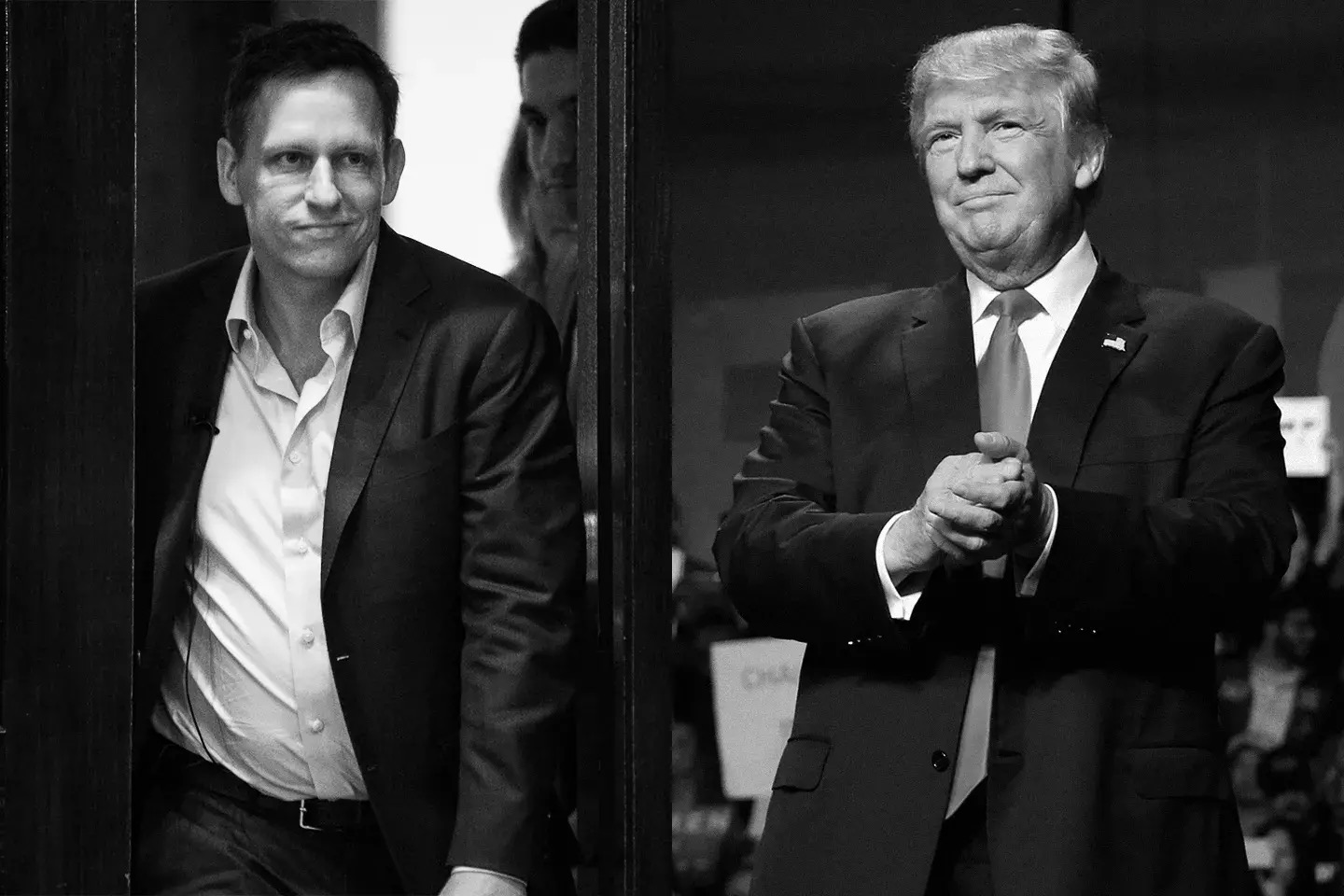Former president Donald Trump announced his candidacy for the 2024 elections in a falsehood-ridden speech on Tuesday night, drawing grave warnings from Stanford political experts and California congressional representatives.
Trump spoke in front of a familiar “Make America Great Again” podium at his Mar-a-Lago estate, ensuring that one of the first campaign expenditures of the 2024 cycle went back into the former President’s pocketbook. The choice of location also had the effect of challenging Florida Governor Ron DeSantis, a favorite for the Republican nomination who has drawn Trump’s ire, on his home turf just one week after a predicted “red wave” failed to materialize for Trump-backed candidates in battleground states.
“I think the timing of the announcement speaks to the former President’s narcissism and insecurities,” wrote Representative Anna Eshoo (D-Calif.), who represents Stanford’s congressional district, in an email to The Daily.
“He simply couldn’t handle candidates like Governor DeSantis being heralded as ‘DeFuture’ while he was blamed for the nonexistent ‘red wave.’ He was desperate and tried to change the subject,” Eshoo added.
Eshoo laid the blame for some of the former President’s continued amplification at the feet of social media companies based in Silicon Valley, parts of which belong to her district.
“Trump’s rise would not have been possible without the siloing, polarizing effects social media has had on our society,” the congresswoman wrote. “Permitting Trump to return to Twitter [as Elon Musk has pledged to do] would give him a bigger platform for sharing lies, conspiracy theories and hate and would be harmful to our democracy.”
Trump was removed from Twitter and multiple other social media networks after the insurrection on Jan. 6, 2021. While he remains banned on those platforms, Facebook sent out a memo to staff after the announcement saying it would no longer fact-check Trump’s claims as a once-more-active politician. But other organizations, including the January 6th Committee, continue to investigate Trump’s falsehoods and the role he played in stoking political violence. The committee recently announced that Trump had ignored its subpoena, meaning he could be held in contempt of Congress.
Adam Schiff (D-Calif.) ’82, who led Donald Trump’s first impeachment and came to Stanford several weeks ago to warn about Republicans’ attempts to overturn the 2024 election, redoubled his commitment to holding the former president accountable in the hours after Trump’s announcement.
“We beat him before. We will beat him again. We will protect our democracy,” wrote Schiff, who is reportedly eyeing a Senate bid after declining to run for House leadership in the wake of Nancy Pelosi’s departure as Speaker of House.
Schiff may continue to serve as one of Trump’s primary antagonists as investigations and various indictments against the former President are underway. Last month he told The Daily that Republicans will make the House “absolutely ungovernable.”
Other members of the Stanford community also reported grave reactions to the announcement.
“Former President Trump poses a grave threat to American democracy,” wrote Hakeem Jefferson, an assistant political science professor. “His willingness to incite violence to maintain power all make him unfit to serve in any public office.”
Larry Diamond, a senior fellow at the Hoover Institution and the Freeman Spogli Institute for International Studies, was similarly critical.
“Trump is a uniquely dangerous threat to the future of American democracy,” Diamond said. “Obviously he doesn’t have much support on the Stanford University campus [where] most feel he’s a menace to democracy.”
But not all were certain that the community would coalesce against the ousted president.
Cameron Lange ’24, the co-president of Stanford Democrats, said she “felt disappointed, but not surprised to watch Trump’s election announcement speech today.” She recalled attending an event with former Vice President Mike Pence last year on campus.
“There seemed to be a pretty sizable right wing contingent in attendance,” she said. “I don’t know how Stanford students as a whole react to Trumpism. And the degree to which people will mobilize for or against it.” (Stanford GOP did not respond to a request for comment.)
The Stanford community itself may not have decided either. 18-29 year olds, on average, broke +28 points for Democratic candidates during this year’s midterm elections. But Stanford is unique among peer institutions for its connection to the Hoover Institution, which hosted Trump’s staunch ally in Mike Pompeo earlier this fall and maintains several former Trump advisors — including Generals Mattis and McMaster as well as former Deputy National Security Advisor Matt Pottinger, all of whom eventually broke with the former President — on its staff. Pottinger, Mattis, McMaster and Condoleezza Rice, former National Security Advisor to President Bush and head of the Hoover Institution, did not respond to requests for comment.
Other Trump allies, including Senator Josh Hawley (R-Mo) and billionaire donor Peter Thiel, are alums, though so are some of his fiercest opponents, including Representative Zoe Lofgren (D-Calif.) who sits on the January 6th Committee.
What role Stanford and the companies, talent and faculty in its nexus will play in aiding or injuring Trump’s 2024 chances remains unseen.
Jefferson said, “Republican Party elites and their voters have a choice to make, and it’s no exaggeration to say that the future of American democracy depends on that choice.”
